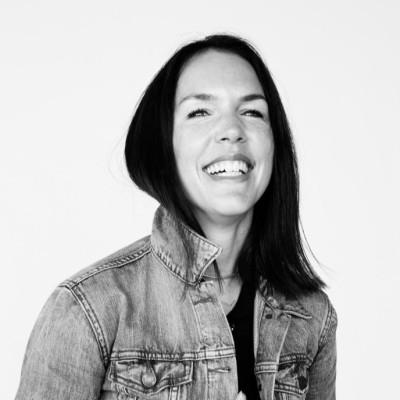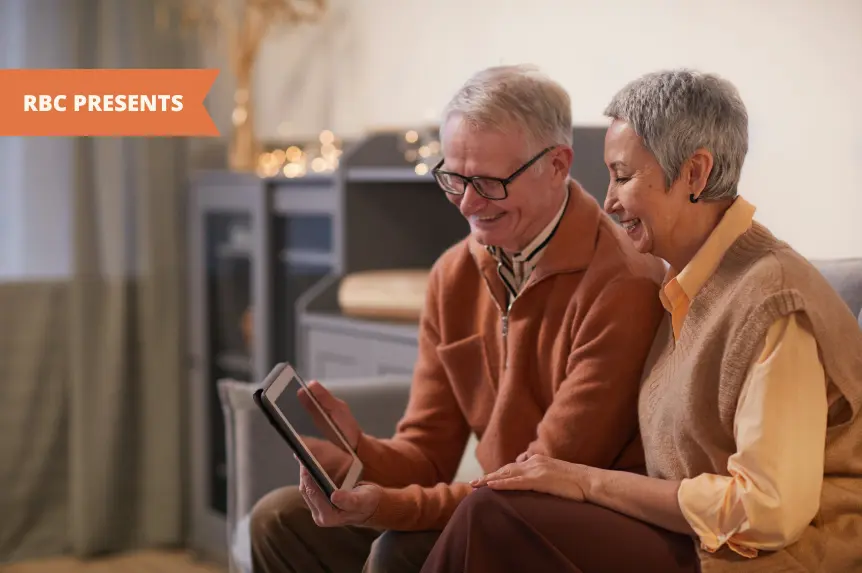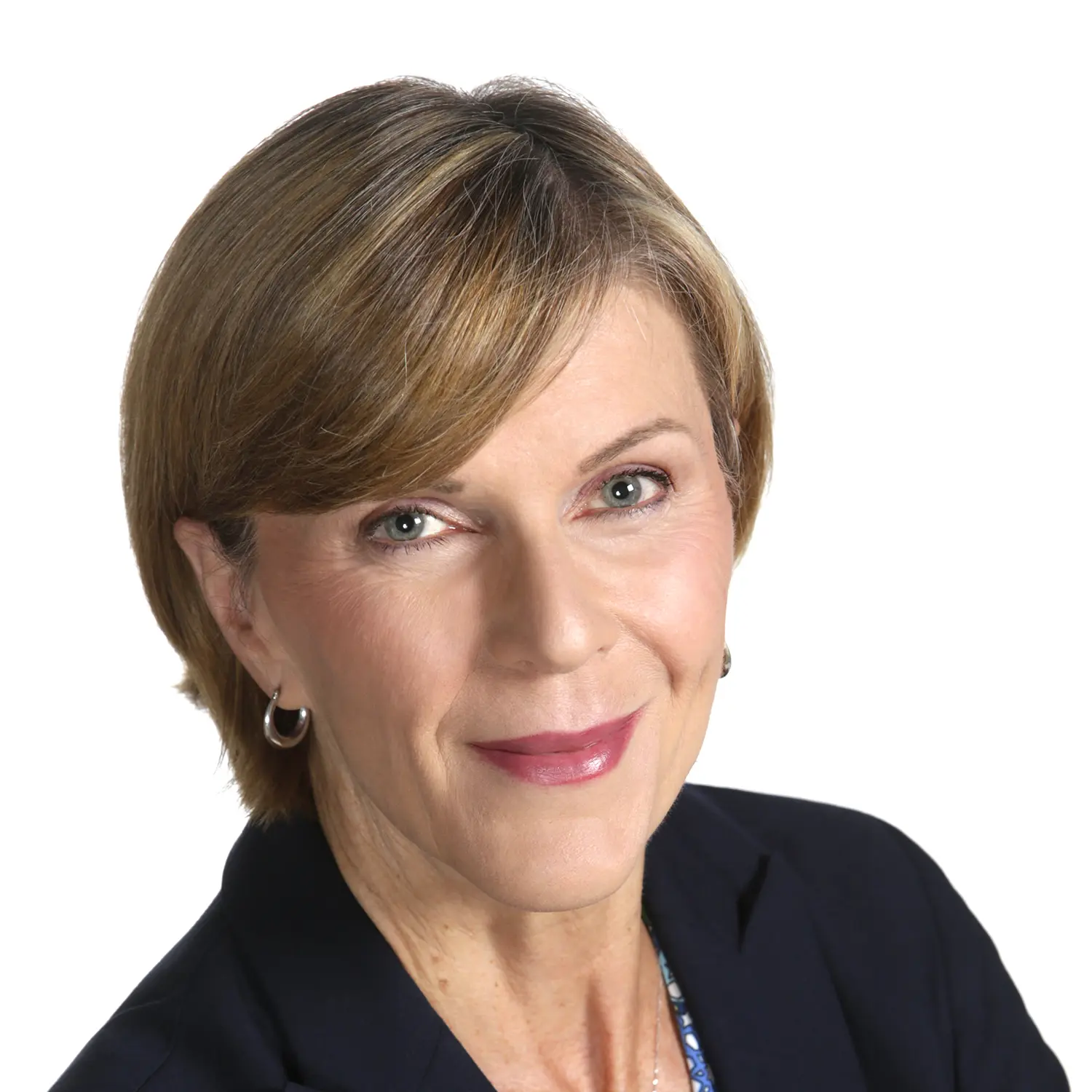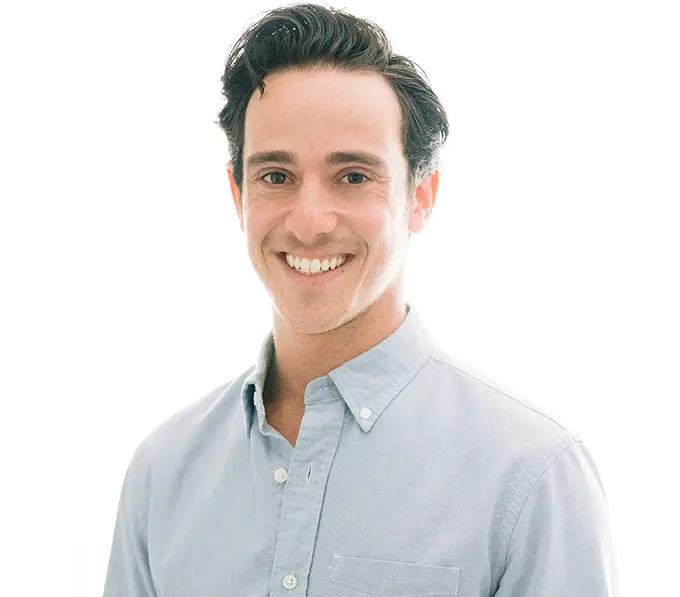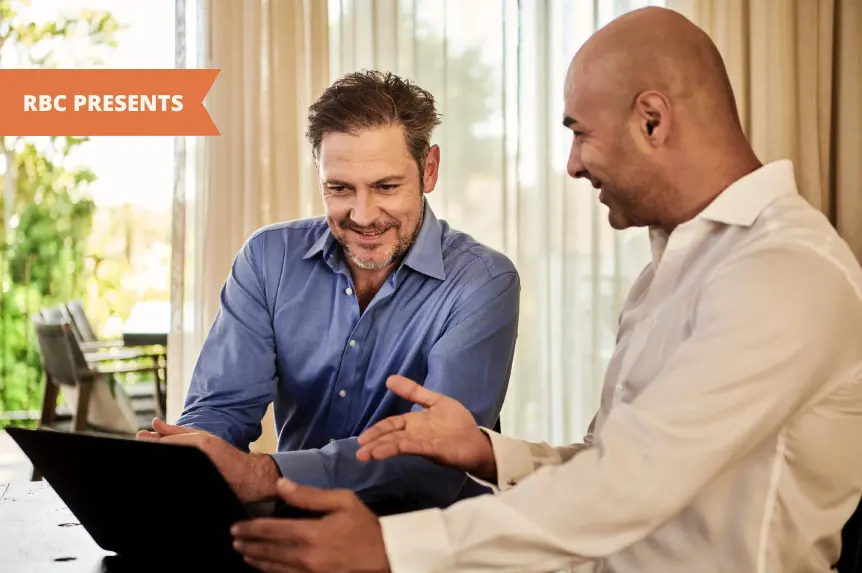Making Conversations About Death Less Spooky
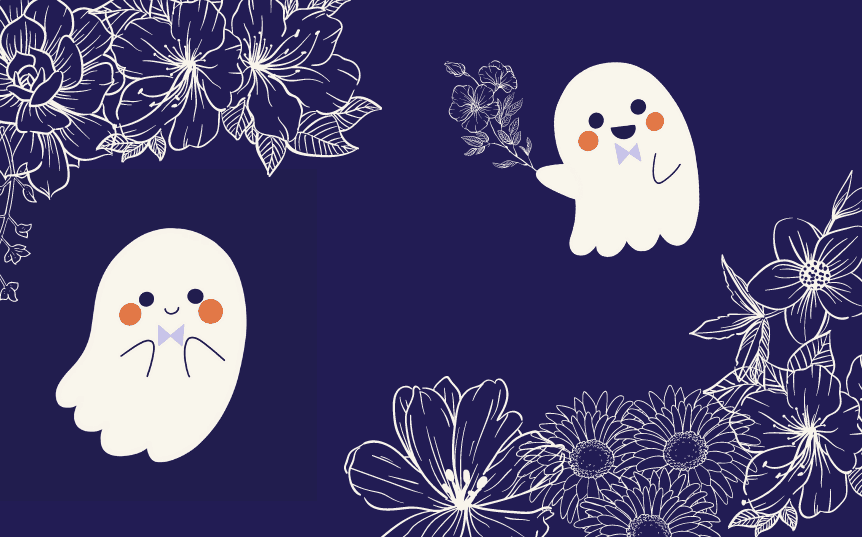
Halloween often brings the anticipation of scaring the bejesus out of ourselves for fun. But, really, it only adds to the taboo around the topic of death that makes us avoid it altogether during the rest of the year.
But, when you think about it, the topic of dying shouldn’t be so scary. It’s literally the only guarantee we have in life. So, knowing we all have this one inevitable thing in common, why do we avoid talking about it?
This year, we are approaching Halloween a bit different. After all, Halloween 2020 is certainly going to be a different one regardless… In an effort to make conversations around end-of-life and death more approachable and less scary, we asked some experts for advice.
Meet the Experts
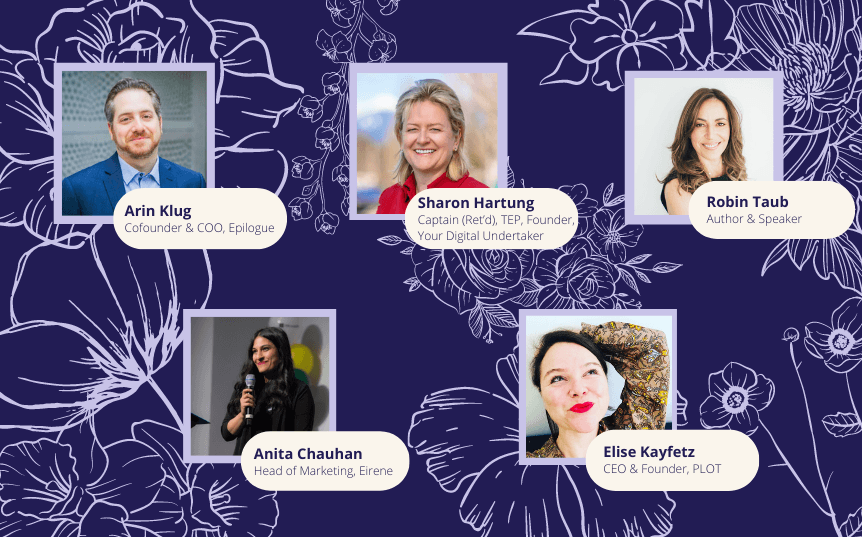
Why do you think the topic of death is so difficult for people to discuss?
Arin Klug (AK): There are a few reasons why I think death is a difficult topic:
Death is not a pleasant thing to think about, or a comfortable thing to talk about. Most people don’t like to deal with things that are unpleasant or uncomfortable, unless they have to. So, if we can avoid a discussion about death – if it’s not something we absolutely need to talk about – most people are happy to skip it altogether.
Another reason why people don’t like to talk about death is that we rarely talk about death in the abstract. We usually talk about death in relation to someone – usually someone we know and who is close to us. Because we’re so good at avoiding these conversations, they usually only happen shortly before someone we know passes, or shortly after they have passed. This makes the topic, as a whole, very emotionally charged.
One thing that ties both of these reasons together is that, fortunately, death is not something we have to deal with on a day-to-day basis. While death is a normal part of life, it is not a normal part of everyday life. Most people are comfortable in their every day routine. And because we so seldom deal with death, it is a topic that is foreign to most people. That’s why it is difficult to discuss.
Robin Taub (RT): I find one of the most common reasons people find it difficult to talk about death is that it’s such an unknown. None of us have ever experienced it and it’s so final.
Sharon Hartung (SH): It just is. As I mention in my book: “As I worked my way through my mom’s estate project, I began to realize that, somehow, we generally still haven’t figured out how to talk about death. There is shock and so many revelations when dealing with the death of a loved one. It is really time to figure out how to have a better conversation about death.”
Elise Kayfetz (EK): Death doesn’t allow any semblance of control, and not always by choice. We feel we can’t talk about it because we don’t know what it’s like, and our ego’s don’t like to feel out of control. Our egos want to feel pride in talking about death the same way we do when we talk about lived moments. So, because of that, death is hard to talk about and scares us because we don’t know enough about it—it’s unattainable, and it’s unknown. All we know is what society has taught us: Death is about the spooky ghosts that pop out at you at those haunted houses, threatening to take you away. We’ve been conditioned to not talk about it so it’s time to change the game. It’s time to look at death.
Anita Chauhan (AC): Our own mortality is scary. The fear of the unknown can push us to avoid the hard questions and when we do not look something in the face, or have a societal understanding that something shouldn’t be discussed, it makes it harder to pull back the veil and actually take in what is happening. I believe that the more we can talk about it, together, the easier it will become. I can already see a shift in how past generations spoke about death and how younger generations are approaching it. People want a shift and we have some change-makers shaking up the space.
Why are conversations around end-of-life planning so important?
AK: These conversations are important because end-of-life planning decisions are very personal in nature. Without these conversations, family members are left to guess about what someone “would have wanted”, and often doubt whether they made the “right” decision. The real benefit of having these conversations is to avoid the uncertainty (and often the guilt) that people experience from having to make decisions without full knowledge of what their family member actually wanted.
RT: It’s so important to take time to have conversations around your death while you’re still alive and mentally there. If you take the time to plan now, you can avoid conflict, ensure that your wishes are followed, save taxes, and have peace of mind.
SH: Most estate practitioners can offer various perspectives on why it is so important, including the importance of communicating your wishes and preferences in advance so that your family and executor know what to do. Conversations are even more important in a digital age as there is no longer a paper trail to your life. The home office has gone digital so your executor/estate trustee is now likely faced with a locked screen. This means your wishes and your assets (both physical & digital) could be lost.
EK: Having conversations around our own death means we get to plan and take control of our lives, even though we may not know our end date…unless it’s planned of course. I think having these conversations allows us live life to the fullest—the Buddhists say that when we consider death, wonder about death, and understand “nothingness”, we can begin to live more fully. And advances in LegalTech (like Epilogue) and DeathTech (like PLOT) have made advance planning that much easier.
AC: Not only will these conversations help you understand what is to come and ultimately remove some of the fear that comes with it, it also helps remove the burden off of our loved ones. When we plan, we take care all the hard bits so our loved ones can easily manage end of life arrangements and not worry about conflicts or confusion. The goal is to make the process as easy as possible.
Did your family discuss their Wills and wishes with you growing up?
AK: My father initiated the conversation at a time when he was ill. My siblings and I were young (all between the ages of 22 and 26). We had the very classic “Don’t worry, Dad. Everything is going to be fine.” response. But my father didn’t give us a choice—he told us it was a conversation we needed to have. I remember listening – half-trying to process what he was saying and half-trying not to acknowledge that this was information we would need to worry about…. at least not for a long time. In hindsight, what was an uncomfortable and surreal conversation ended up being one of the most important conversations we ever had as a family.
RT: One parent did not discuss things with us and their affairs were not in order. It was a whole ordeal. The other did have their affairs in order and estate administration was much smoother. But, even with the most organized estate, it is a lot of work to administer and wind up.
SH: I didn’t have the Will and estate planning conversation with my Mom. She and I both didn’t realize how important those conversations were. When my Mom died without a Will, I came to realize the big job of the executor and all the questions I wished I’d asked.
EK: Since I was a teenager, my parents told me I would be out of the Will if I ever got a tattoo; that’s about as far as we got…back then. However, nowadays, my parents have been more open about sharing what their plans are and the only thing I say is: please make the Will equal and fair so that myself and my siblings don’t wind up fighting as is the case of so many other families. Let a Will bring us together, not divide us apart.
AC: My dad had been having these conversations with my sister and I for a while, especially because my mum had passed when I was young. So, the topic of death and loss was not new to our family. My dad is a big planner and he has always made sure, especially after the passing of my mum, to put things in order—from his will to our life insurance. I think we handled it very well and–while tough–all three of us entered the convo healthfully.
When making a Will and Powers of Attorney, who are the most important people to have conversations with?
AK: You should certainly have conversations with the people you’ve decided to appoint as your executor(s), attorney(s), and guardian(s). There have been too many cases in which the people appointed to fill these important roles only learn of their appointment after-the-fact. These people may or may not be the same as the beneficiaries in your Will. If not, then you *may* want to discuss your Will with the beneficiaries as well – particularly if you are planning to do something like distribute assets unequally between children. What I always used to tell clients is that the worst thing is for the family to see the Will for the first time after someone dies and be left with a whole bunch of questions about the decisions that person made.
RT: The most important people are your partner and your adult children, if you have them. You also need to speak to your executor(s) and guardian(s) to make sure they’re willing and able to do the job.
SH: The answer to this question will be different depending on your circumstances. But in general, it is those closest to you; your loved ones including your family, your friends, and beneficiaries. Having said that, one of the most important conversations to have is with your executor/estate trustee. When approaching a conversation with your executor/estate trustee, ask yourself these two questions:
How is the executor supposed to know what you have?
Where is the executor supposed to find the information?
EK: To be honest, the most important person to talk to first is yourself. You need to ask yourself those hard-hitting questions. You need to know what you’re comfortable with, and similarly, what makes you uncomfortable. Ask yourself not only what you’re comfortable with but who you are comfortable with, In other words, who do you trust to ensure your legacy–both financial and emotional–are upheld. When you have an answer to these questions you can plan to have good, healthy conversations.
AC: Financial advisor, insurer, family, and lawyer (if you have a more complicated estate.)
What advice can you offer for people who have trouble approaching these sensitive conversations?
AK: It’s important to remember that if these conversations don’t happen, the loved ones that are left behind will have questions that they will be forced to answer without any guidance. That can be a very hard thing to do. By having these conversations with loved ones while you are alive, you can alleviate a lot of stress from what will already be a difficult emotional circumstance.
RT: If it feels overwhelming, remember that you don’t have to deal with everything in one conversation. Break it down into several discussions. Perhaps involve a third party/trusted advisor to help facilitate the conversation.
SH: These are not easy conversations to have. I’d say the starting point is collecting some information. The death positive movement (which is pretty active on twitter), have been seeking to change the conversation. There are some really interesting books out there as well as conversation aids like this interview on TVO Ontario: https://www.tvo.org/video/internet-afterlife
EK: Here are 5 steps to take the edge off when it comes to approaching these heavy discussions:
Ask yourself why talking about death scares you.
Don’t rush it and go at your own pace.
Find ways to get comfortable with the uncomfortable.
Remember that death isn’t spooky.
Start to visualize how you want to plan your funeral
AC: Ask yourself first what you want and what your final wishes are. Starting with some introspection can help make the process easier. Be honest and courageous! This is tough and having to talk about end-of-life things can be a struggle for many.
Conversation Starters
Our experts offer these questions as a catalyst for some of these awkward conversations around death.
What kind of legacy do you want to leave?
What are your wishes for your assets?
Do you want to make any bequests to charities?
Who do you want as guardians for your minor children?
Did you know: Facebook’s Legacy Contact where you select someone who will have access to your account after death?
Did you know: Facebook allows you to select your account to be memorialized or deleted, and they have just announced a new Tribute Tab?
Did you know: Google Accounts have an Inactive Account Manager option where you can add someone who will have access to your Google account after a period of activity?
What’s one thing you learned from the person in your life who recently passed away?
What do you want to have happen to your body after you pass away? Would you rather be cremated and launch your ashes into space? Do you want to be an organ donor?
Have you considered that physical space has become an issue for burial sites and would you consider an eco-burial?
Did you know that fan favourite 90210 character, ‘Dylan’ (Luke Perry) was buried in a mushroom burial suit?
Hopefully, being able to answer some of these questions helps take a bit of the spooky out of the topic so you can feel confident and at ease having these very important discussions.
For more information
Get in touch with any of our experts for more information. They’d be happy to hear from you!
Elise Kayfetz: Instagram
Anita Chauhan: Website | Instagram | Twitter | Eirene Twitter
Have a very UN-spooky Halloween y’all! From all of your friends at Epilogue.
